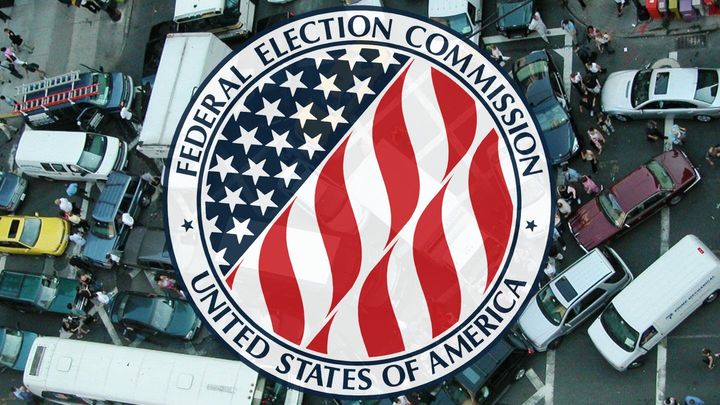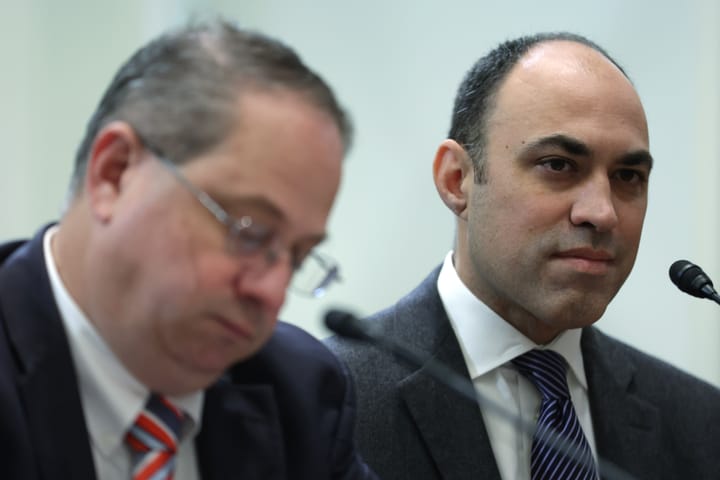The most expensive election cycle ever came and went without the agency in charge of enforcing campaign finance laws having the quorum necessary to operate. But now, just in time for 2022 campaigns to begin filing their first disclosures, the Federal Election Commission can at least hold meetings again.
Yesterday, the Senate confirmed the nominations of three new commissioners to the Federal Election Commission, giving the agency a quorum to operate for the first time since June. All told, the Commission has been without quorum for over 13 of the past 14 months. While the agency can now start working through its backlog of hundreds of pending enforcement matters and regulations, observers of the agency are not expecting the FEC to suddenly be an effective body.
“Congress intentionally structured the FEC to be weak at its creation,” said Meredith McGehee, executive director of the nonprofit group Issue One. “After all, the FEC’s jurisdiction is candidates for federal office. Since then, the FEC has frequently shown itself to be a prime example of a ‘captured agency’ that is more interested in pleasing politicians and the lawyers who appear before it than in protecting the public interest.”
The FEC’s basic operational issue is partisan gridlock. The commissioners are appointed by the President and confirmed by the Senate, and by law no more than three commissioners can be affiliated with the same political party. Because its decisions affect the distribution of a major source of political power, i.e. money, the agency splits 3-3 on nearly every issue, with commissioners’ votes aligning with their parties’ electoral financing agendas.
The commissioners confirmed yesterday are not likely to step outside their partisan lanes. Republican nominee Allen Dickerson was the head of campaign finance deregulation think tank called the Institute for Free Speech, formerly called the Center for Competitive Politics, that opposes contribution limits and donor disclosure, and cheered the Supreme Court’s Citizens United decision that led to billions of dollars in dark money flooding into elections. The other Republican nominee, Sean Cooksey, was counsel to Sen. Ted Cruz (R-Texas) when he introduced legislation to eliminate contribution limits. The Democratic nominee, Shana Broussard, was formerly counsel to FEC Commissioner Steven Walther, an independent who almost always sides with Democrats.
Former FEC Commissioner Ann Ravel, a Democrat, took the agency to task for its dysfunction in a report she published on her way out the door in 2017.
“A bloc of three Commissioners routinely thwarts, obstructs, and delays action on the very campaign finance laws its members were appointed to administer,” Ravel wrote. “This bloc voted in lockstep 98% of the time, according to a recent news analysis of cases closed since 2015.
“Due to the bloc’s ideological opposition to campaign finance law, major violations are swept under the rug and the resulting dark money has left Americans uninformed about the sources of campaign spending.”
A bipartisan bill has been introduced in Congress to solve the FEC’s structural problems called Restoring Integrity to America’s Elections Act, and it has also been rolled into the Democrats’ big bill of election reforms, H.R. 1. The number of commissioners would be reduced from 6 to 5 and allow each party to have only two affiliated members. The fifth member would be independent, meaning they couldn’t be registered as a voter with the party or employed by party groups.
Issue One, which supports the Restoring Integrity to America’s Elections Act, also wants Congress to take up additional FEC reform measures, several of which have been added to H.R. 1.
“Congress should establish a firm term limit for commissioners with a defined holdover period, to prevent commissioners from serving long after their term has ended, and incentivizing the president to nominate new commissioners in a timely fashion,” said Daneille Caputo, Issue One’s legislative and program counsel. “Congress should also create a bipartisan, expert panel to make nominee recommendations to the president.
“Next, the FEC chair should be given more power so that the Commission has a more streamlined and effective chain of command. Finally, Congress should find a way to create a faster moving, more efficient enforcement process. This can be achieved in a number of ways including: requiring the FEC to investigate complaints in a more timely fashion or creating a system for FEC employees to investigate complaints before the Commissioners vote on whether there’s reason to believe a violation took place.”
Voters this year were affected by the FEC’s inaction on a number of pending matters, such as a lack of rules that would require disclaimers on online political ads. In the days before Election Day, the non-partisan Campaign Legal Center filed a complaint with the FEC alleging that a Louisiana congressional candidate illegally funded a super PAC supporting his run with state campaign funds. And commissioners will have to address the “Bloomberg loophole,” the record-breaking $18 million that Mike Bloomberg transferred to the Democratic National Committee from his shuttering presidential campaign.
In 2020, the often-quorumless FEC closed just 35 enforcement cases, fewer than ever before by half.
Congress isn’t known for passing bills that strengthen agencies that police their behavior, but Caputo is hopeful that this past election cycle could inspire more Republicans to get on board with reform. “Given the amount of money spent in this election cycle by Democrats and Democratic-leaning groups, they see that it isn’t a partisan issue to have an effective watchdog upholding our campaign finance laws,” Caputo said.
Read more from Sludge:


